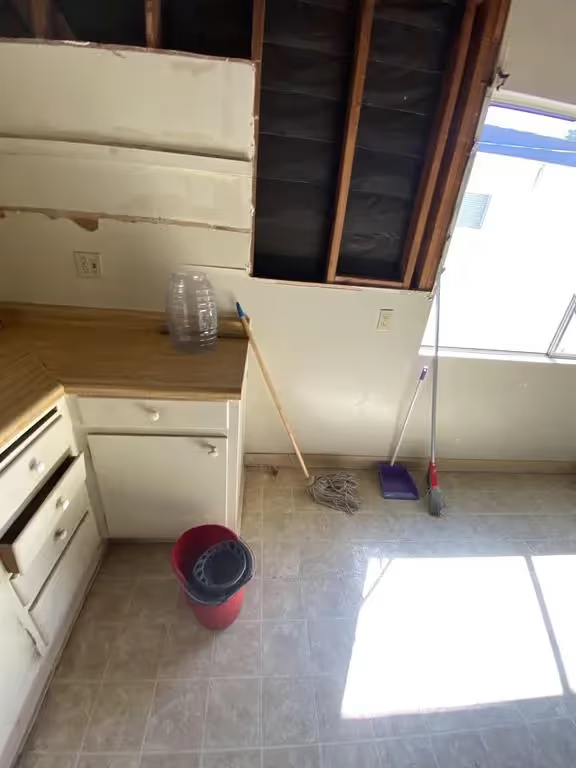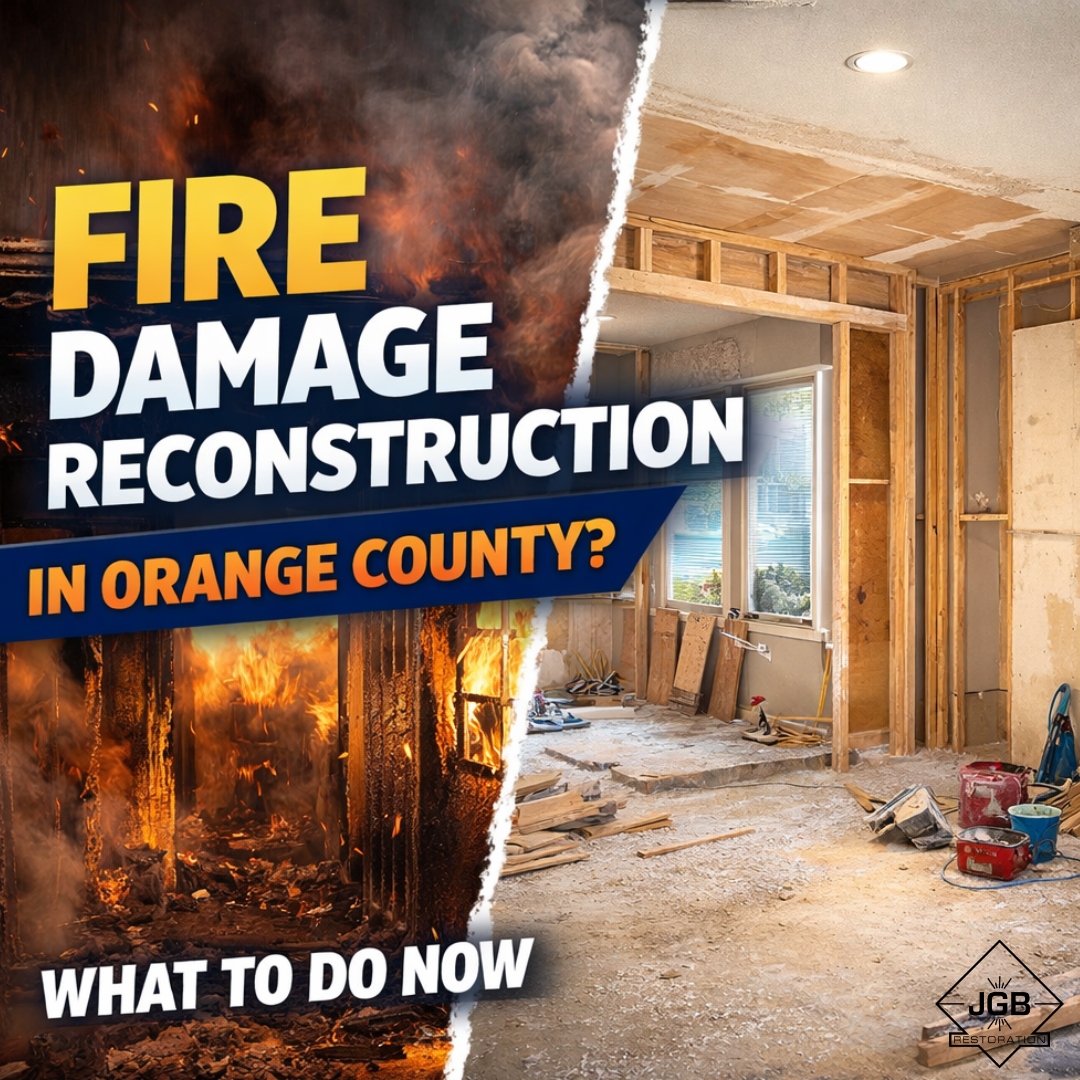As wildfires become increasingly common and severe in California, particularly in areas like Huntington Beach, being proactive about protecting your home from wildfires is critical. California is home to some of the most devastating wildfires in the U.S., with over 2.5 million acres burned in 2021 alone, according to the California Department of Forestry and Fire Protection (Cal Fire). To prepare your home and property for wildfire season, you should take preventative measures and implement safety strategies that could make the difference between minor damage and total loss.
Whether you're near the wilderness or in suburban neighborhoods in California, these essential tips help you enhance the fire resistance of your home and minimize the risk of wildfire damage.
Assess Your Property’s Wildfire Risk
The first step in preparing your home is to understand your property’s risk level. Wildfires thrive on dry vegetation, high winds, and heat, so proximity to forests, hillsides, and dry landscapes increases the likelihood of a wildfire reaching your home.
For those in Huntington Beach and other coastal areas, while wildfires may seem less immediate than in forested regions, embers travel up to a mile and ignite rooftops or landscapes even far from the main blaze. Knowing your proximity to fire-prone areas and staying updated on local fire conditions help you plan and act swiftly if evacuation orders are given.
1. Create Defensible Space Around Your Home
One of the most effective ways to reduce your home’s vulnerability is by creating defensible space. Defensible space is the area around your property where vegetation and other combustible materials are minimized to slow the spread of fire.
- Zone 1 (0-30 feet from your home): In this zone, you want to remove any dead plants, dry leaves, or combustible materials, including mulch and wood piles. Keep grass mowed to a maximum of 4 inches and prune trees to ensure branches are at least 10 feet away from your roof.
- Zone 2 (30-100 feet from your home): In the second zone, space out trees and shrubs to prevent the fire from easily spreading. Make sure any plants in this zone are fire-resistant, such as succulents or certain types of oaks.
These efforts ensure that a fire slows down or stops before reaching your home, providing firefighters the space they need to combat the blaze.
2. Use Fire-Resistant Building Materials
Another key factor in preparing for wildfire season is reinforcing your home with fire-resistant materials. Homes built with wood shingles, wooden decks, and other highly combustible materials are particularly vulnerable to wildfire damage.
Consider upgrading your home with the following:
- Roofing: Install Class A fire-rated roofing materials like asphalt shingles, metal, or clay tiles. These materials are far more resistant to embers and flames than wood shake shingles.
- Siding: Opt for fire-resistant siding materials like stucco, fiber cement, or brick.
- Windows: Dual-pane windows with tempered glass are less likely to break from intense heat, helping to keep embers from entering your home.
3. Clean and Maintain Your Property Regularly
Routine maintenance significantly reduces your home’s wildfire risk. Embers from a fire journey far and easily ignite dry debris, so keeping your property clean is essential during wildfire season.
- Clean gutters and roofs regularly to prevent the buildup of dry leaves, pine needles, and other flammable materials.
- Trim trees and shrubs around your home to create adequate spacing between plants and between tree canopies.
- Inspect decks and patios to ensure there are no flammable materials stored underneath them.
4. Install Ember-Resistant Vents
Many homes are equipped with attic or foundation vents that allow airflow but also let embers inside. Installing ember-resistant vents is an easy and effective way to prevent these embers from entering your home. These specially designed vents have a mesh that blocks embers while still allowing for proper ventilation.
5. Create an Emergency Action Plan
Despite all prevention efforts, it's crucial to be prepared for the worst-case scenario. Creating a wildfire emergency action plan for your family is a vital step in ensuring everyone knows what to do if a fire threatens your home.
Your plan should include:
- Evacuation routes: Identify multiple routes to evacuate from your home in case one becomes blocked by fire or traffic.
- Emergency contacts: Keep a list of emergency numbers, including local fire authorities and utility companies.
- Important documents: Store important documents such as insurance papers, birth certificates, and passports in a fireproof safe or have digital copies saved in cloud storage.
6. Stay Informed During Wildfire Season
During wildfire season, staying informed and alert is critical. Sign up for local alerts and warnings from agencies like Cal Fire and monitor weather conditions closely. Know when red flag warnings are issued, which indicate critical fire weather conditions.
Modern technology offers numerous tools to help stay updated:
- Emergency notification apps: Apps like FEMA or Ready For Wildfire send real-time alerts directly to your phone.
- Weather tracking: Follow local weather updates to monitor high wind conditions that fuel wildfires.
Expert Insight: Trust the Pros for Comprehensive Fire Prevention
While these steps are essential, a professional assessment provides an extra layer of protection. Companies like JGB Restoration in Huntington Beach are experienced in helping homeowners prepare their properties for wildfire season. From home inspections to mitigation plans, working with professionals ensures that all potential fire hazards are identified and addressed.
Wildfire prevention is a complex and ongoing process, but with the right strategies, you significantly reduce your home’s risk and protect what matters most.
Final Thoughts
Preparing your home for wildfire season takes time and effort, but the results are well worth it. By creating defensible space, using fire-resistant materials, maintaining your property, and staying informed, you dramatically increase your home's chances of surviving a wildfire. Don't wait until the fire is at your doorstep—take action now to safeguard your property and loved ones.




